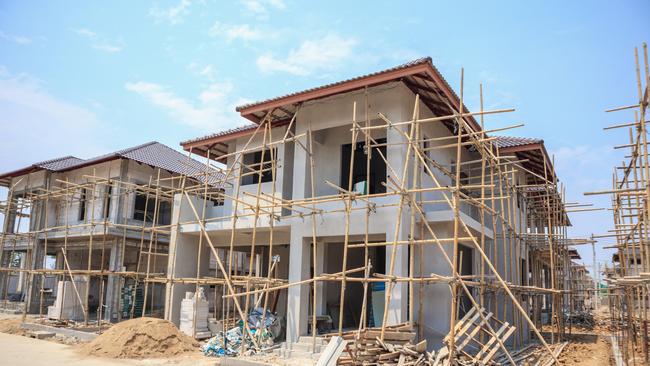Jobs and Skills Summit could see Australia return to the 1980s in unions get their way


In the weeks leading up to December 25 there was always a threat of strikes in the breweries because this was the time when the best profits were earned. Managers knew what was coming and would always give in to the demands including bad work practices because, along with their rivals, they were able to pass on extra costs.
Nine times out of 10 the beer arrived and there were celebrations. But each year the brewing enterprises were becoming less and less efficient.
Similar bad management decisions were duplicated in vast areas of the nation so Australia by the mid 1980s was in bad shape. Employers blamed the unions but the managers were equally to blame.
In 1986 the then Treasurer Paul Keating accurately described the prevalent community attitudes this way:
“We took the view in the 1970s — it’s the old cargo cult mentality of Australia that she’ll be right. This is the lucky country, we can dig up another mound of rock and someone will buy it from us, or we can sell a bit of wheat and bit of wool and we will just sort of muddle through … In the 1970s … we became a third world economy selling raw materials and food and we let the sophisticated industrial side fall apart”
Four years later at the end of the 1980s Australia hit the wall and experienced what Keating described as “the recession we had to have”. Interest rates went to 17 per cent and industry bargaining was abandoned.

Of course, bad industrywide agreements were only part of the poor management we saw in the 1970s and 1980s but that 1986 Keating warning will very much apply to Australia in 2023-24 if we go back to the old ways without learning the lessons.
Individual enterprise agreements after 1990 greatly curbed the power of the unions and made many managers think about the enterprise they were managing and its local and international competition plus its opportunities. But unions did not adapt and lost out. In former times they could bring an industry to its knees. But when you attack just one company in an industry its rivals take market share and workers jobs are endangered. The industrial muscle of union membership fell but the unions themselves became financial entrepreneurs and most are now financially powerful bodies.
The big employer bodies at the summit have forgotten what the old days were like. Corporate chiefs in 2023 will face co-ordinated well financed opponents looking to restore their old membership strength. It will require a standard of management that did not exist in former times. Managers will have to be skilled in their hiring and relate to their employees and contractors.
And if the ALP delivers for its rich union backers, it will give the ALP far greater spending power than any other political party in the land.
The industry I am most concerned about is home building. For a long time the unions have looked longingly at the big differences in remuneration and work practices between commercial building and smaller dwellings.
Normally when an industry using similar skills is divided into sectors, with one sector paid a lot more, the gap soon narrows. But in the small dwelling area workers and subcontractors enjoy the freedom and lack of union interference that exists the housing sector. Small builders develop teamwork between contractors and employees not seen on most big sites.
They are paid less but actually enjoy more enjoyable working conditions. But the home building industry has been badly battered in the industry wide crisis. If there is a national building agreement where commercial buildings and homes have the same rates and rules then the cost of building a house will explode.
Costs have already risen 20 to 30 per cent. A total industry agreement would add much greater percentage increases. A building industry agreement may recognise the two sectors but I doubt it. The unions made sure no bankers and no one representing smaller builders were invited to the summit. For example had Matt Comyn, the CEO of our largest home lender, the Commonwealth Bank, been asked to come he would have seen the danger in an instant. An building industry wide agreement represents a threat to the volume of new dwellings and therefore his mortgage business. The industry bodies, including banking, who were selected by the government to negotiate at the summit rarely think about the detailed implications of what they’re doing to the operational areas.
Current enterprise agreements are far too complex and hinder productivity and worker rewards so it may to be possible to have straightforward enterprise agreements as part of a trade off.
But that will require very skilled managers that rarely emerged in the decades when industry wide agreements dominated the landscape. And in 2022 many unions have the financial muscle to hire the best people.
But I conclude with a wildcard. As I pointed out under the heading “The High Court has changed the game on contract work”, the decision by our highest court potentially opens a new way of operating enterprises that does not reduce pay rates but in fact enhances them. The government is going to legislate, so it’s too early to act, but there is just a chance that a new era for productivity and higher worker rewards can emerge via that High Court decision.



In the decades leading up to the 1990s when entire industries had their own employment agreements — as envisaged by the jobs summit — you didn’t not need to look at the calendar to know when Christmas was approaching.